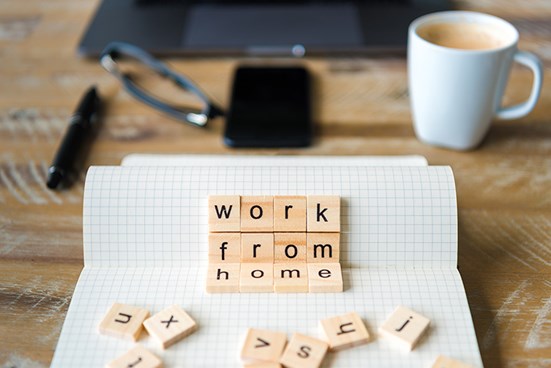
Interview with Adam Furze, President of the University of Portsmouth Law Society
June 29, 2020
Handling Coronavirus among the Homeless: a Comparison of National Approaches
June 29, 2020Trinity Batt explores the impact of lockdown and remote working on the mental health of lawyers and the productivity of the legal industry.
The disruption caused by lockdown is far-reaching, giving rise to a series of novel concerns whilst exacerbating existing ones, such as the mental health of the public and workers. Face-to-face contact and communication are central aspects of the legal profession, and remote working has forced the industry to become more dynamic in order to adjust and adapt to these new challenges.
We consider the effects of isolation, such as anxiety and loneliness, alongside the practical obstructions to carrying out legal work which have arisen. There may be an observable interrelationship between the mental health issues experienced by lawyers and the struggles of remote working. If remote working is to the detriment of the mental health of workers, productivity may also suffer and thus, online working may not be sustainable. Therefore, a question to consider is whether the legal industry has suffered on account of these particular circumstances. More specifically, whether it is possible that the industry actually can thrive in a remote capacity despite the mental health problems faced by those working at home in this time.
The Difficulties of Remote Working for Lawyers
Unsurprisingly, reflections from lawyers vary on how well working from home has proven. This is particularly true when considering the differences between the experiences of barristers and solicitors.
Barristers
In comparison to solicitors, barristers are arguably more greatly affected. The physical space of a courtroom is a most pertinent feature of the work being carried out. The UK Government provides that ‘Courts and tribunals reported that the numbers of cases heard each day in England and Wales with the use of audio and video technology increased from under 1,000 in the last week of March 2020 to approximately 3,000 by mid-April.’ Where it is possible, remote hearings are and have been occurring since lockdown was imposed except in the case of urgent and essential cases which call for socially distanced hearings. The juxtaposition of holding remote hearings and the surroundings of the parties’ home lives poses difficulties for lawyers and threatens the formality of court work. For example, the urgent need for clerks, barristers and judges to develop their technological capabilities may negatively impact the effectiveness of their work as a result of these increased demands of their job. Further, while all professions encounter technological issues and poor Wi-Fi connections which hinder work, in hearings there is a crucial need for engagement and clarity of communication. An element of professionalism may also be compromised during remote hearings. Whilst remote hearings are necessary in the current climate, given the disadvantages highlighted, it is questioned whether the profession will pursue further opportunities for remote work in the future.
Solicitors
It could be argued that solicitors are able to work from home more easily, given the nature of their work and available technology providing the platforms and opportunities to conduct business as usual. Again, the reliance on technology brings about its own pitfalls and the strength of firm’s technologies and the support which a firm can deliver to its employees largely determines the effectiveness of the work which they can do. Many firms having been improving and building upon their legal technology long before lockdown began. The results of a survey on larger law firms published by The Law Society shows that ‘Whilst Corporate and Commercial Law is the second most frequently practised area amongst respondents (60), there is considerably less concern about this area being able to continue (10) compared to others’. Given that this is a highly competitive and sought after practice which dominates the solicitor profession, these findings suggest that the work of commercial solicitors is more suited to online communication and may even benefit from remote working. Moreover, the mental health of solicitors may be closely linked to the effectiveness of their remote work. The absence of commute times and increased efficiency of tasks due to the ease of online access may, with the capability of their work to function remotely, lead the way to a changed industry for solicitors.
The Direction of the Legal Industry
The future of the legal industry has been addressed largely within the context of the mental health of lawyers in a time of lockdown. However, in a post-lockdown future where enforced isolation no longer raises mental health concerns, more weight is placed on the practical effectiveness of the industry. It is apparent that remote working has improved the efficiency of work in many ways. This includes increased productivity of lawyers and perceived benefits of conducting business via technology.
The trend of a more technologically-focused industry in conjunction with the positive benefits of remote working for solicitors may see an accelerated movement to this way of working. However, as established, not all areas of the industry have been as successful in this time, with barristers more distinctively being impacted by the situation in addition to the typical struggles of being in lockdown. The compatibility of a barrister’s work with remote settings and the consequently increased difficulty of the work, which could worsen mental health, places uncertainty on whether an online shift within this area of the industry is a viable prospect.
The legal industry is becoming increasingly aware of mental health of lawyers, and many firms continue to make steps to improve in this area. The suitability of a solicitor’s work to remote working suggests that it may improve their wellbeing rather than harm it. Despite huge uncertainty for the future of various industries, some areas of the legal industry may adopt the technologies and remote nature of work sooner than others.
Trinity Batt, The Student Lawyer





